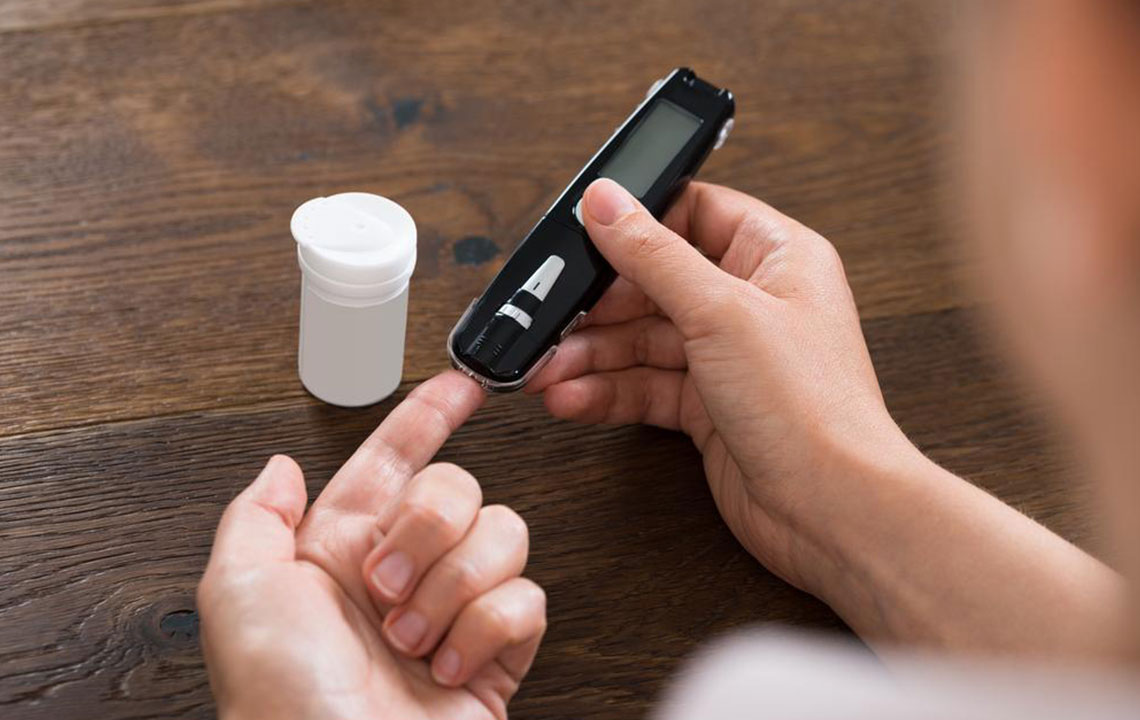Effective Ways to Lower Blood Sugar Levels
Hyperglycemia or high blood sugar is an illness that affects a wide number of people and is also known as diabetes. This disorder in the sugar levels in the blood may be caused by several reasons such as medication, irregular meal timings, excess exercise and more.
Blood sugar is also known as glucose and maintaining the right levels of glucose is essential as it is a source of energy. Glucose comes from food that we consume every day.

The repeated fluctuation in glucose levels too can cause serious damage in the body and lead to the development of several kinds of conditions. A person who suffers from high blood sugar may not notice it until they faint or feel nauseous. In case the condition is left untreated, one can also slip into a coma.
Symptoms of high blood sugar
The symptoms of high blood sugar can differ from person to person. Also, the symptoms depend on the severity of the condition. Here are a few signs that indicate if a person is suffering from high blood sugar.
Sweating – The first sign that indicates an increase in blood sugar levels is sweating. The different body parts begin to sweat profusely, and one feels uneasy. Usually, the back of the neck and the palms begin to sweat profusely.
Blurred vision – A person begins to have difficulty with eyesight. The vision becomes blurry and hazy over time. In few instances, the eyes may water too.
Slurred speech – This symptom may occur when the sugar level increases to a very high level. There is a sudden change in the behavior. Speaking fluently becomes an issue, and one begins to slur.
Seizures – In case of severe high blood sugar, a person may suffer from seizures. This can even lead to stroke or death.
Causes that trigger high blood sugar
High blood sugar is caused by several reasons. However, common causes of this condition are medication and the lifestyle one lives. Here are a few other causes of high blood sugar.
Exercise – People who exercise without eating well are at a greater risk of high blood sugar. Exerting the body, without eating enough is not healthy.
Disorder in organs – If the body suffers from any disorder in the liver, heart or kidney, the chances of suffering from hyperglycemia is greater. However, one may also be affected by low blood sugar, depending on the illness.
Pregnancy – A woman is at a high risk of suffering from high blood sugar as well as low blood sugar during pregnancy.
If one suspects that they have a low blood sugar, one should visit a medical professional. The doctor will check the blood sugar levels and understand the medical history. One should brief the doctor about any symptoms that they are experiencing. Using a blood glucose meter to track the blood sugar level will aid in keeping the level on the track.
How to lower blood sugar levels
Undergoing treatment to lower blood sugar is essential. However, here are few self-care methods that will help in maintaining blood sugar levels.
Stay hydrated – Individuals who suffer from high blood sugar should make it a routine to drink liquids and keep the body hydrated. This helps in flushing out toxins from the body. Moreover, the habit of drinking water is essential to regulate bowel movement.
Eat small meals – It is necessary to take small meals every short while. Rather than having one big meal three times a day, eating small meals would help to lower blood sugar and maintain the right levels.
Perform relaxation activities – High blood sugar patients should not stress the body or mind as it causes a drop a spike in blood sugar levels. Practising different relaxation methods such as meditation and yoga would be beneficial. Breathing exercises help reduce the risk of suffering from high blood sugar or diabetes.
Consume apple cider vinegar – Apple cider vinegar is lauded for its health benefits. It also helps to lower blood sugar levels. This is because it can improve the sensitivity of insulin. Apple cider vinegar can be consumed through meals or by diluting it with water. However, before consuming apple cider vinegar, one should check with the doctor as it can meddle with the effect of medications.
Control carb intake – Too much of carb intake interferes with the insulin function, and thus, controlling carb intake can lower blood sugar levels. Sticking to a low-carb diet is the way to go.
Sleep well – It is important to catch up on sufficient sleep. Adequate sleep not only helps lower blood sugar levels but also aids in the overall well-being of the body.
Blood sugar levels can be controlled and is not a deadly condition when taken care of with the right treatment.